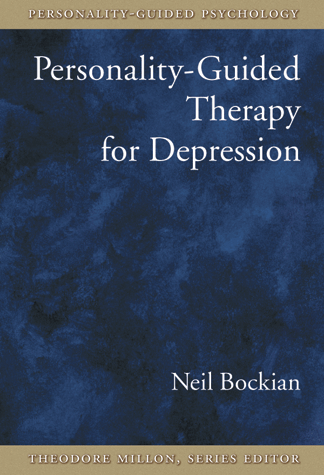

Most ebook files are in PDF format, so you can easily read them using various software such as Foxit Reader or directly on the Google Chrome browser.
Some ebook files are released by publishers in other formats such as .awz, .mobi, .epub, .fb2, etc. You may need to install specific software to read these formats on mobile/PC, such as Calibre.
Please read the tutorial at this link: https://ebookbell.com/faq
We offer FREE conversion to the popular formats you request; however, this may take some time. Therefore, right after payment, please email us, and we will try to provide the service as quickly as possible.
For some exceptional file formats or broken links (if any), please refrain from opening any disputes. Instead, email us first, and we will try to assist within a maximum of 6 hours.
EbookBell Team

4.1
60 reviewsIn Personality-Guided Therapy for Depression, Neil R. Bockian describes a promising new approach to treating complicated depression, cases in which progress is painfully slow, elusive, or followed by relapse. The causes and experience of depression are influenced by personality style, or deeply rooted patterns of functioning in the world. Depression in a person with a dependent style, for example, differs markedly from that in someone with an antisocial personality. This volume demonstrates how, drawing insights from major theoretical orientations, psychotherapy can be tailored to address patients' varying issues and communication styles. As treating personality disorders alleviates depression, and vice versa, this approach offers new hope for progress in both realms. Using Theodore Millon's personality-guided therapy as framework, Dr. Bockian illuminates how specific personality types play into depression, and how taking personality into account enables psychologists to tailor their interventions to the patient and thus improve the prospects for long-term recovery. For each personality type, the author explores how prevalent depression is, what promotes and maintains it, how psychological, biological, and social factors contribute to it, and the role of medications and of therapist reactions to the patient. This groundbreaking book offers practitioners, researchers, and students a framework for understanding how personality factors increase vulnerability to depression or help buffer against it.